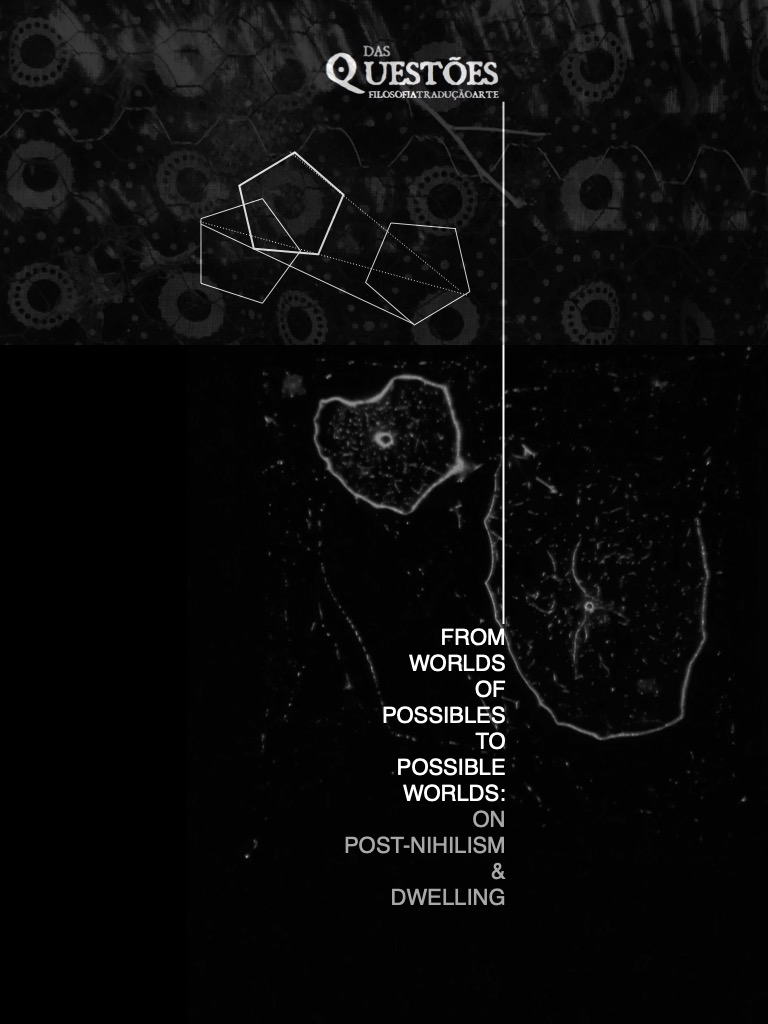Dismantling the World The Capitalocene, Effective Constructivism, and the Inhuman
Conteúdo do artigo principal
Resumo
An inhuman dimension haunts the world; but this dimension is repressed by what I call the effective constructivism, understood as what configures the world. Leaning on Moore’s analysis, first I will shed some light on the relation between the Capitalocene and effective constructivism. Using Haraway’s notion of the Chthulucene, in the second section I will break the plane of symmetry that effective constructivism produces between humans and nonhumans. In the third section, I will explain how the concept of the inhuman might be more efficient than the concept of the nonhuman to contest effective constructivism: the inhuman is the unconstructable part of the human that resists the humanist scheme at play in effective constructivism. In the last section, I will lean on Heidegger’s philosophy to imagine what dismantling the world of the Capitalocene could mean and why this dismantling might foster the decolonization of nature.
Downloads
Detalhes do artigo

Este trabalho está licenciado sob uma licença Creative Commons Attribution-NonCommercial 4.0 International License.
Autores que publicam nesta revista concordam com os seguintes termos:
Autores mantém os direitos autorais e concedem à revista o direito de primeira publicação, sendo o trabalho simultaneamente licenciado sob a Creative Commons Attribution License o que permite o compartilhamento do trabalho com reconhecimento da autoria do trabalho e publicação inicial nesta revista.
Autores têm autorização para assumir contratos adicionais separadamente, para distribuição não-exclusiva da versão do trabalho publicada nesta revista (ex.: publicar em repositório institucional ou como capítulo de livro), com reconhecimento de autoria e publicação inicial nesta revista.
Autores têm permissão e são estimulados a publicar e distribuir seu trabalho online (ex.: em repositórios institucionais ou na sua página pessoal) a qualquer ponto antes ou durante o processo editorial, já que isso pode gerar alterações produtivas, bem como aumentar o impacto e a citação do trabalho publicado.
Referências
CLARK, Nigel. Inhuman Nature: Sociable Life on a Dynamic Planet. New York: Sage, 2010.
HARAWAY, Donna J. “Anthropocene, Capitalocene, Plantationocene, Chthulucene: Making Kin.” Environmental Studies, v. 6 (2015), p. 159-165.
HARNEY, Stefano, and Fred MOTEN. All Incomplete. Foreword by Denise Ferreira da Silva. Photos and Afterword by Zun Lee. Colchester and New York: Minor Compositions, 2021.
HEIDEGGER, Martin. Off the Beaten Track. Edited and Translated by Julian Young and Kenneth Haynes. Cambridge and New York: Cambridge University Press, 2002.
LYOTARD, Jean-François. The Inhuman: Reflections on Time. Cambridge and Malden (MA): Polity Press, 1991.
MOORE, Jason W. Capitalism in the Web of Life: Ecology and the Accumulation of Capital. London-New York: Verso, 2015.
NANCY, Jean-Luc. Adoration: The Deconstruction of Christianity, II. Translated by John McKeane. New York: Fordham University Press, 2013.
NEYRAT, Frédéric. “Escaping Humanism.” Stream 04 – Les paradoxes du vivant (2017). English translation available at: https://www.pca-stream.com/en/articles/frederic-neyrat-escaping-humanism-91. Accessed: 09/26/2021.

